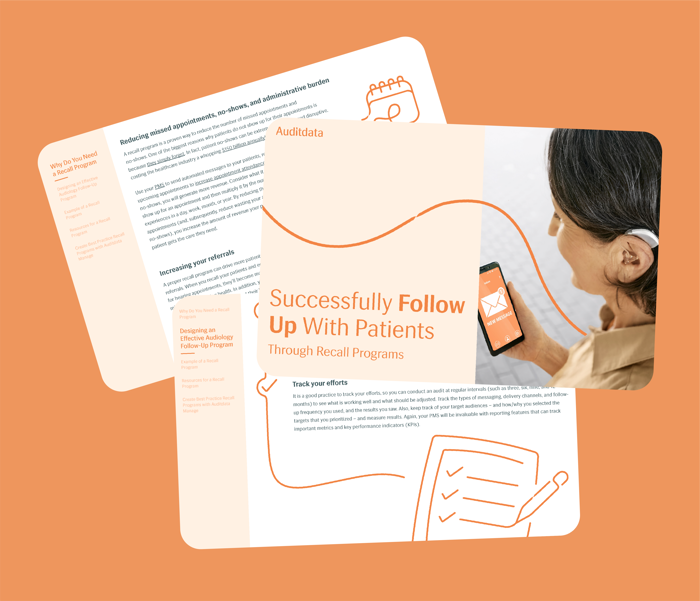FREE GUIDE
Keep Patients Coming Back with Consistent Follow-Up
Missed appointments are a major source of lost time and revenue in healthcare, costing the industry an estimated $150 billion annually.
This guide helps audiology practices design and automate effective recall programs that reduce no-shows, re-engage patients, and support ongoing hearing health. With actionable tips and messaging templates, you’ll learn how to boost engagement while keeping your schedule full.

Inside You'll Find
Enhance your audiology practice's patient engagement and recall effectiveness with our in-depth guide. Packed with actionable insights and industry-tested strategies, this guide will take you through the essentials of creating, implementing, and maintaining a highly efficient Recall Program.
- Strategies for Designing an Effective Audiology Follow-Up Program
- The Importance of Regular Check-ups for Ongoing Hearing Health
- Tools and Resources to Automate Your Recall Program
- Ways to Measure and Improve Your Recall Program's Success Rate
Slide to take a sneak peek of the guide
Is this Guide for You?
Feeling unsure about how well your clinic's follow-up program is actually working? The best way to pinpoint room for improvement is by asking the right questions. Answer yes or no to the questions, and see if there are gaps in your follow-up strategy that our comprehensive guide can fill.